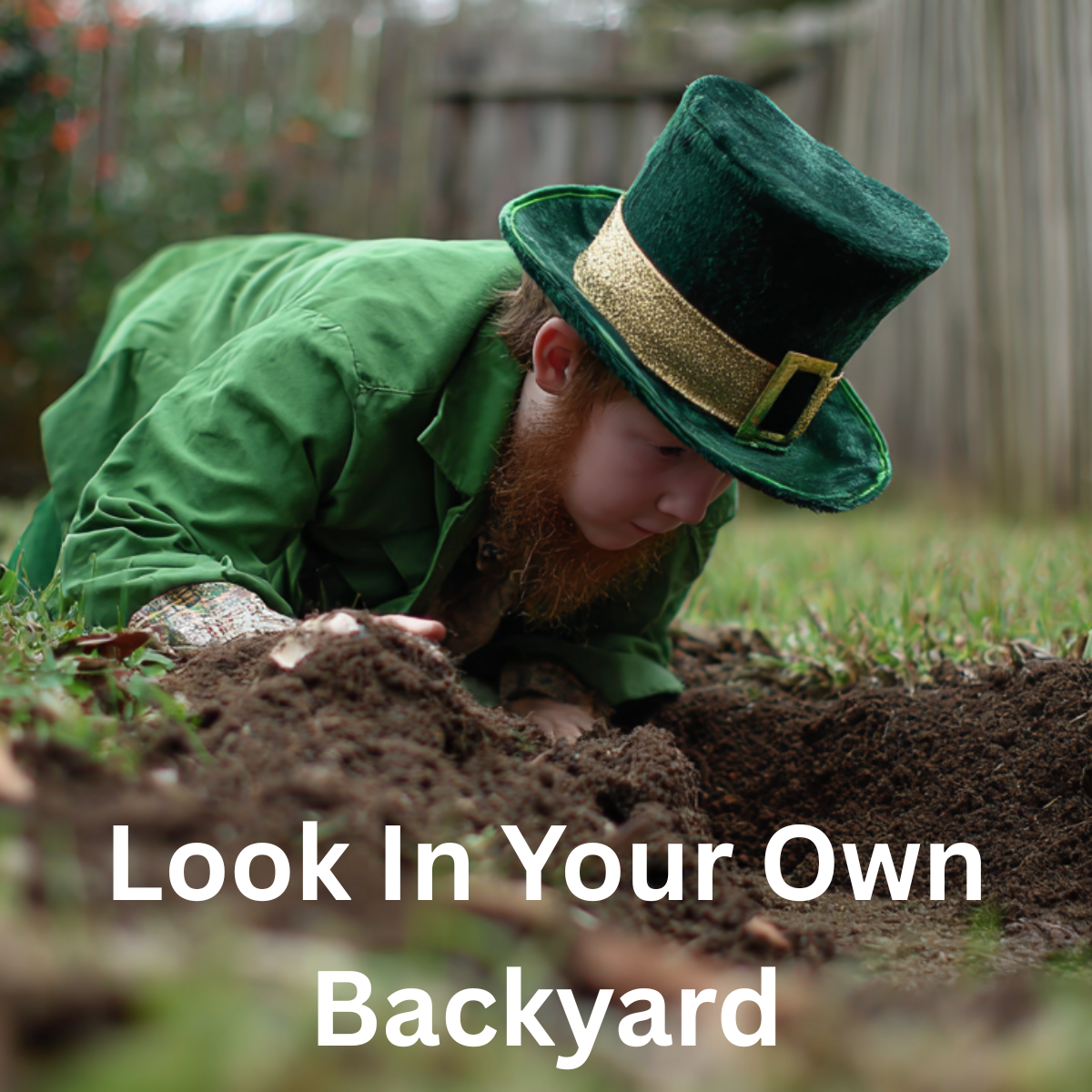We are often looking over the fence for the next greatest thing. What are those people doing? What is going on way over there? If I could only just live there, then life would be grand. These are common thoughts that we all have. We are always willing to look outward and far away for potential solutions, but never in our own backyard. Why?
There is a classic folktale, told in many traditions, that reflects on this concept. A friend of mine related a story to me from the Sufi tradition, an ancient sect of Islam in which there was a common story found in various literature sources. There was a famous poet from that tradition named Rumi, who had a book called the Masnavi. This folktale is found in that book. Now, try as I might, I could not find a good translation, but here it is in summary:
A poor man in Baghdad dreams that if he goes to Cairo, he will find treasure buried under a specific bridge. He travels all the way to Cairo, only to be arrested for acting suspiciously. When he tells the guard about his dream, the guard laughs and says, “You fool! I myself dreamt that treasure was buried in the house of a poor man in Baghdad under such-and-such a spot—but only a fool would go on such a journey based on a dream!” The poor man realizes that the guard is describing his own house. He returns home, digs beneath his house, and finds the treasure.
This is a theme that is repeated quite frequently in various ways. Rabbi Nachman of Breslov records a similar parable, or at least that is what I found by searching around. However, I was listening to The Alchemist by Paulo Coelho on Audible, and I heard the exact same parable, repeated under slightly different circumstances. I started thinking about this; the thought seemed so familiar to me. Then I remembered:
“There’s no place like home.”
That is right. Dorothy is ultimately taught, after all of her travels through Oz, that in reality there is just no replacement for home. The moral of the story, as Dorothy wakes from her dream and finds everyone alive and happy, is that sometimes we have what we need all along, but we must go on a journey to realize it.
If this is the case, should we lament the journey? If we have everything we need to be successful right here in front of us, but only realize that is the case after taking a long and arduous journey, should we be upset with ourselves?
The treasure was not found in Emerald City, the Great Pyramids of Egypt, or under a bridge in Prague, but rather the entire time sitting right here where we live, in our own backyard. The journey, then, is not wasted. It is essential.
We often look outward because we are searching for clarity, meaning, or a sense of possibility. What we fail to realize is that the outward search is a mirror for the inward one. The treasures we long for—truth, purpose, identity, even success—are often nearby, buried in the soil we know best. But we are not ready to see them until we have journeyed, questioned, and struggled.
So perhaps the message is not to stop dreaming of faraway places or looking over fences, but rather to recognize that the answers we seek may already be here, waiting for us to return with new eyes, deeper understanding, and the willingness to dig.
In the end, it is not the distance we travel, but the perspective we gain, that leads us to the treasure.




